
THE political processes in India, particularly since Independence, have uncannily pushed Indian Muslims to the margins. The push, quite evident since the 1990s, is largely the result of three interrelated conceited-imageries in Indian politics. One, the burden of partition is ominously placed onto the Muslims, even to those who stayed back in India, either by choice or necessity, and inferably were stereotyped as traitors, anti-national and untrustworthy. Since partition days, India as an ‘imagined community’, or perhaps as a ‘spectacle democracy’, reproduces its collective ethical identity, where we find, at times, the corrosion of secularism, and, at times, the near-complete exclusion of Muslims. The past, of course, has been undeniably rocked by communalism, violence and persecution of Muslims. Two, Islamophobia emerged as the dominant mode of prejudice against Muslims, leading to widespread exclusion, hate crimes and disparagements. The Hindutva project, tracing its roots to the iterations of Veer Savarkar that Muslims are enemies of the Indian nation, has fuelled an even more extreme demonisation of Muslims and has exacerbated the climate of fear and violence feeding into the rising Islamophobia. And third, the neo-liberal project, with its in-built proclivities to exclude vulnerable groups from the market distribution of resources, and more precisely from the labour market, has taken a toll on Muslims.
This story is from the September 21, 2024 edition of Outlook.
Start your 7-day Magzter GOLD free trial to access thousands of curated premium stories, and 9,000+ magazines and newspapers.
Already a subscriber ? Sign In
This story is from the September 21, 2024 edition of Outlook.
Start your 7-day Magzter GOLD free trial to access thousands of curated premium stories, and 9,000+ magazines and newspapers.
Already a subscriber? Sign In
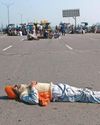
Between Life, Death and Protest
The strain of sustaining a long protest is evident among farmers at Khanauri, but the sense of community remains strong
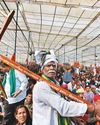
Protest 2.0
Farmers still have hopes from their leaders, but time is running out. The enemies, in the meanwhile, are sharpening their weapons

Trajectory of Nowhere
In the context of space and time, who are we humans and do we even matter?
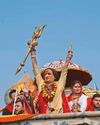
All of God's Men
THE ongoing Maha Kumbh at Prayagraj is a spectacle, a photo op, and an emotion and manifestation of the mixing of spirituality and faith.
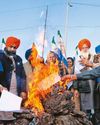
Embers Rekindled
While the recent death by suicide of a farmer has rendered the mood sombre at Shambhu border, the protests have picked momentum at the call of the unions
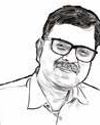
Time for Course Correction
What the protest by Punjab's landed peasantry tells us about the state's economy and society
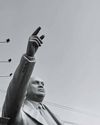
The Untouchable
The ideological chasm between Ambedkar's vision and the Hindutva worldview remains irreconcilable
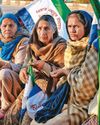
Frontliners
A day in the life of women protesting at Shambhu border
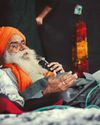
The Farmer-Composing Antagonist
Farmer leader Jagjit Singh Dallewal has been on a fast-unto-death at Khanauri border to pressurise the government to fulfil its promises to the farming community
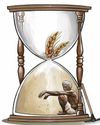
Till Death Do Us Part
Jagjit Singh Dallewal has reinforced how a fast unto death can serve as a warning and an appeal to the public and the government